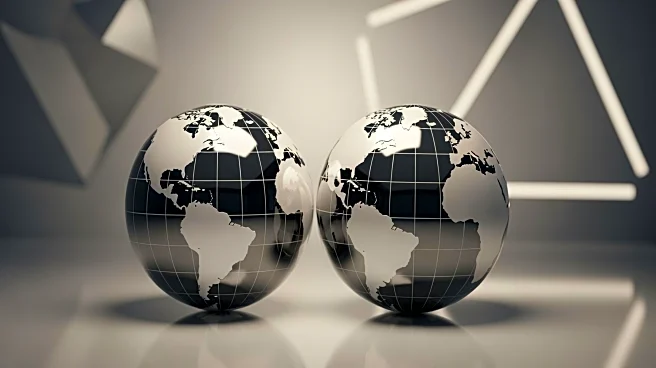What's Happening?
The United States has overtaken China as the largest foreign investor in Africa, marking a significant shift in global economic dynamics. According to the China Africa Research Initiative at Johns Hopkins University, the US invested $7.8 billion in Africa in 2023,
compared to China's $4 billion. This development is largely driven by the US International Development Finance Corporation (DFC), established in 2019 during President Trump's administration, with a mission to counter China's influence in strategic regions. The DFC has been instrumental in supporting African mining operations, such as Rwandan company Trinity Metals, which received a $3.9 million grant to develop its mines. This investment strategy aims to secure critical minerals like lithium, cobalt, and tungsten, essential for technology and defense industries.
Why It's Important?
The US's increased investment in Africa is crucial for securing access to critical minerals necessary for various industries, including technology and defense. This move not only challenges China's dominance in the mineral supply chain but also strengthens the US's strategic position globally. For African countries, this influx of investment presents opportunities for economic growth and development. However, it also necessitates careful negotiation to ensure that the benefits are equitably distributed and that local interests are protected. The shift in investment dynamics could lead to more sustainable and ethical mining practices, as companies like Trinity Metals emphasize conflict-free and environmentally responsible operations.
What's Next?
As the US continues to expand its investment in Africa, African nations are encouraged to negotiate terms that favor their long-term economic interests. This includes exploring frameworks like production sharing agreements and joint ventures, which could lead to the establishment of sovereign wealth funds for development in sectors such as education and healthcare. Additionally, there is a push for more local processing of minerals to increase financial returns and create jobs. The evolving investment landscape may also prompt China to reassess its strategies in Africa, potentially leading to increased competition and collaboration in the region.
Beyond the Headlines
The US's strategic investment in Africa highlights broader geopolitical tensions between the US and China, particularly in securing resources critical for technological advancement and national security. This development underscores the importance of ethical and sustainable practices in the global supply chain, as well as the need for African countries to assert their interests in international negotiations. The shift also reflects a growing recognition of Africa's potential as a key player in the global economy, with implications for future trade and diplomatic relations.















